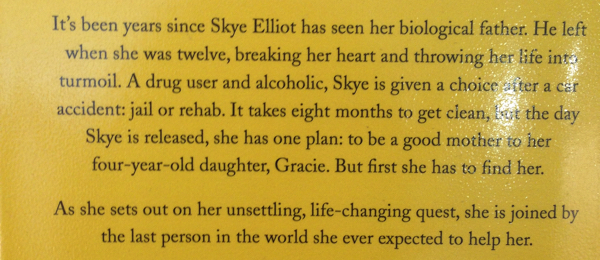Every now and then I find myself having the same frustration in my local library.
I volunteer as part of their home delivery service, taking books to people who are housebound or find it difficult to get to the library.
It’s a fantastic service, I love meeting my clients, getting to know their tastes and chatting about books.
The problem occurs when I get to the library to choose a section of title I think they will enjoy. Sometimes clients will give me titles of authors they like, but they may just say ‘light thriller’ or ‘mystery’. And I like to try and look for something new and interesting to keep them engaged.
So I get to the library, I head to the different fiction sections and it takes about 30 seconds before my brow furrows because I’m overwhelmed by choice.
And the dust-jacket gives me very little help in making a decision
Okay, instead of just browsing the shelves, I could spend more time online researching, reading reviews, whittling it down to a number of books, putting in my request to the library and then heading out to pick them up.
But I just don’t have time.
And sometimes, neither does your customer. Sometimes they’re making decisions not by getting to know you and your business specifically, but by ‘browsing’ your company and the competition.
So, I trust the dust-jacket, or description on the back of the book to decide if I should hire it out or not.
Exasperation ensues…
Let’s take ‘mystery’ or ‘light thriller’. I pull out a title to review:
What do we know about our heroine?
- Her father left when she was twelve
- Her life was thrown into turmoil
- She’s a drug user and alcoholic
- She gets clean after a car accident
- She looks for her daughter
- She has an ‘unsettling’ and ‘life-changing’ quest
- She’s helped by an unlikely person
We know the facts of her life and the story, but what do we really know about her?
Will we like her? Why was she so close to her father? Was he a good character? Was the car accident her fault, or is she more of a victim?
Now, someone might say:
Amy, read than dang book and find out…
But that’s not how it works. In marketing, those above 7 points would be the features, but not the benefits. They tell me what happens, but they don’t give me the meat that tells me:
Is this book going to match what I enjoy
Is our heroine a rebel? Is she kind-hearted? And don’t just tell me she is, show me something she has done which gives me a flavour of her character. Did she cause the accident? Did she steal the car? In the above description, life mostly happens to her. She does nothing until she decided to look for her daughter. So I’m thinking well, perhaps she’s just passive and the story sort of swirls around her.
It’s not distinct enough for me to pick it and go back to my clients and then explain why I chose that book for them.
Would you buy just to try?
But Amy. These are just books. Why are you getting so het up about it?
Well one, because someone has spent years pouring their heart and soul into writing a novel and then there’s this slip of writing which isn’t working hard to sell the value of those blood, sweat and tears.
And two – because it relates to how customer evaluate and choose your business.
Your customer isn’t just looking at your solution, they’re considering a number of possibilities.
Take your home page / landing page / web copy / brochure and line it up side-by-side with 5 of your competitors.
Does yours sound different? Does it convey the value you have to your customer.
Or does it leave them with questions like:
Can I trust them? Why are they different to this other company? Will they go above and beyond for me? Do they have expertise that will help me achieve what I want?
And if your customer has questions, would you say to them:
Buy the dang product and find out…
Probably not. And you’re not going to see that in a marketing campaign anytime soon (I hope).
Sometimes people do judge books by covers (and even buy by them)
We are immersed in our products, just as a novelist is immersed in the ins and outs of his or her book.
But new people are given just a small window into what we have before they decide whether to find out more (and even buy). So are you telling a stand-out story?
If you were to line up your competitor’s messaging alongside your own – would your customer know which one they would want to read more about? Or would they be scratching their heads thinking:
It all sounds the same? Which is right for me?
If it’s the latter, that’s absolutely fine, because at least you now know what everyone else is saying.
Which means you have a starting point for saying something different…
How did you fare? Is your story description unique? Or are you using similar phrases and language to the competition? Want help standing out? Let me know in the comments below.


Leave a Reply